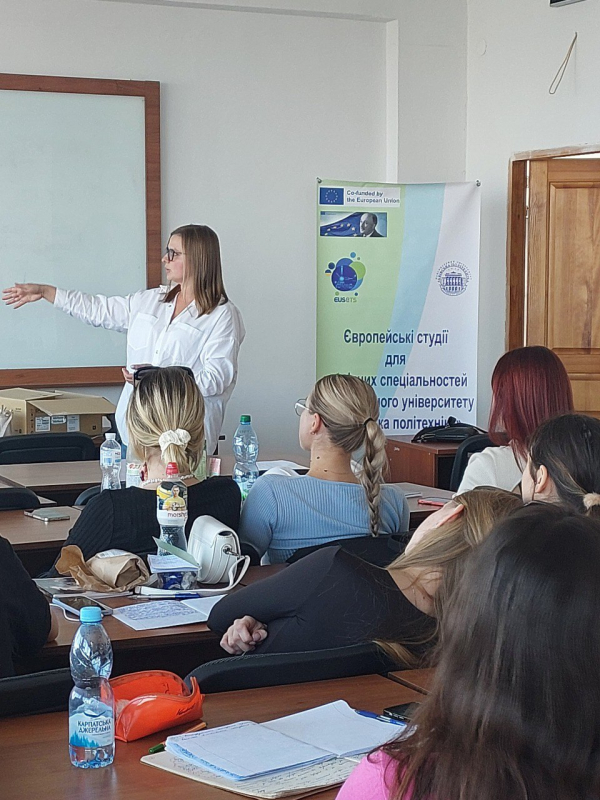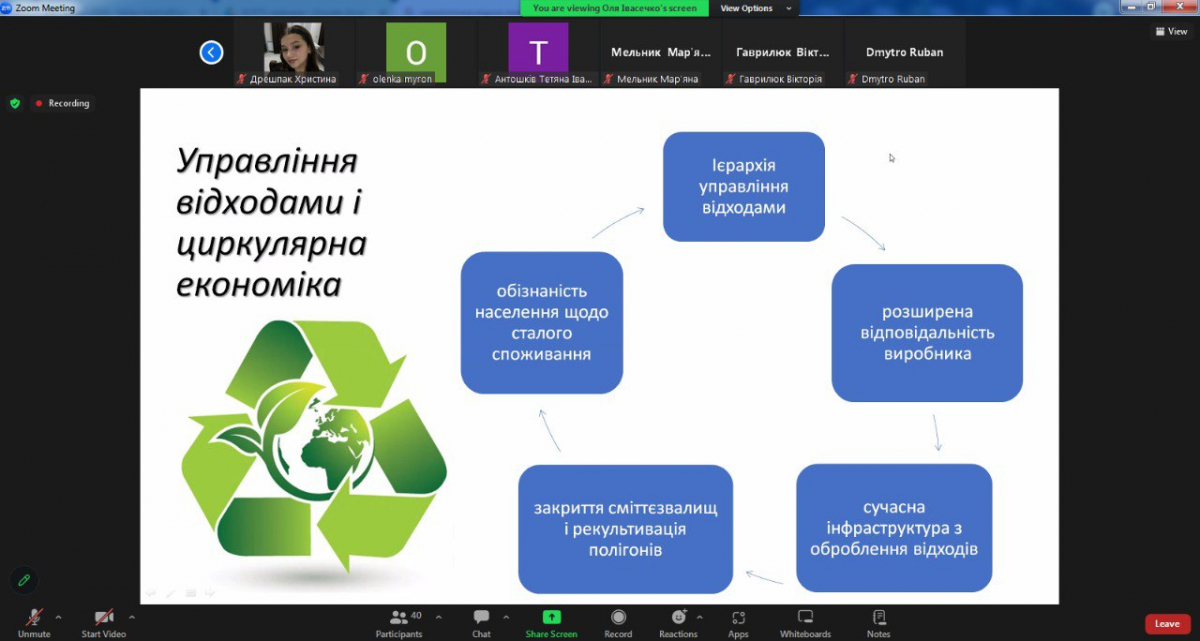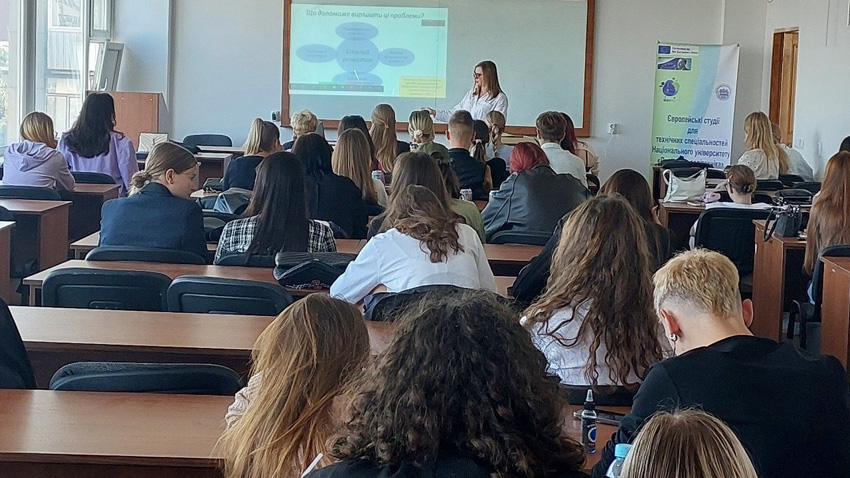On September 19, 2024, Oksana Mylyanyk, Green Recovery Expert, Reform Support Team at the Ministry of Ecology, Environmental Sustainability Coordinator, SoftServe, Legislative Expert, Zero Waste Alliance Ukraine, gave a public lecture on the topic “Priorities for Environmental Protection of Ukraine in the Context of European Integration” in a mixed format.
During the lecture, the speaker focused the students' attention on interesting facts and figures about pollution. For example, about 400 million tons of plastic waste is generated every year and only 10% is recycled; about 170 trillion pieces of plastic waste in the ocean; every year humanity throws away about 1 billion tons of food; 1/3 of all food produced is thrown away; 4,000 children die from dirty drinking water every day; more than 90% of people on the planet breathe polluted air; about 1 million species of plants and animals are on the verge of extinction. species of plants and animals are on the verge of extinction due to human activity; 1 battery pollutes 16 square meters of land with toxic substances. The lecturer also emphasized global environmental problems and the concept of sustainable development as a key tool for solving global environmental problems.
During the lecture, Oksana Mylyanyk also spoke about the Circular Economy Action Plan (CEAP) adopted in 2020 as one of the components of the European Green Deal. The goal of this plan is to achieve a climate-neutral, resource-efficient and competitive economy. This plan envisages the introduction of sustainable consumption and ensuring that the resources we use remain in the economy as long as possible.
The lecturer also outlined the key reforms of Ukraine in the European integration process, including the following: prevention and control of industrial pollution (modernization of existing industrial facilities in accordance with the best available technologies (European standards)), actions towards climate neutrality (decarbonization of industry and all sectors of the economy, low-carbon technologies, renewable energy sources, safe agriculture, energy-efficient construction, environmentally friendly transport, reduction of carbon emissions), conservation of natural resources (protection of the environment).
The waste management hierarchy presented by the speaker was extremely interesting for the students. The key components of this hierarchy are: 1) prevention of waste generation; 2) preparation for reuse; 3) recycling; 4) other recovery operations (including recovery with energy generation); 5) disposal.
Oksana Mylianyk's lecture was attended by more than a hundred participants (63 in person in classrooms plus 47 online), including students of various specialties, teachers, and EUSTS project participants from the departments of Social Communications and Information Activities, Political Science and International Relations, Electromechatronics and Computerized Electromechanical Systems.
The participants of the lecture were interested in the experience of other European countries in this context, the nature of the discrepancies between Ukrainian and European legislation in terms of environmental screening, and which territorial communities are the most eco-conscious.
The event was held within the framework of the project “European Studies for Technical Students of Lviv Polytechnic National University (EUSTS)”, which is implemented with the support of the EU Erasmus+ Jean Monnet Program (activity - a series of public lectures). The project team sincerely thanks all the participants of the event and continues to work on preparing other equally interesting activities on topical issues of Ukraine's European integration and cooperation with the European Union.













